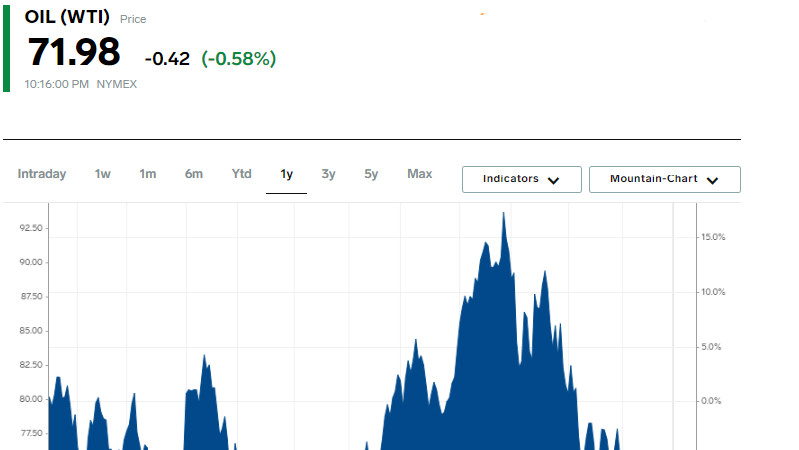
The previous day saw a slight increase in Brent prices and a decrease in WTI, influenced by weakening internal factors in the US and concerns over conflicts in the Red Sea, potentially causing tankers to reroute, thereby increasing costs and delivery times.
WTI prices fluctuated around $72.10 per barrel during Wednesday's Asian session. The decrease was due to an increase in production at American oil extraction sites, particularly in the Permian Basin, where production rose to 5.9 million barrels per day.
The expansion of Canada's Trans Mountain pipeline will significantly ease oil transportation, aiding the growth of crude oil production in North America. Thanks to the increase in production in November, Canada has become the fourth-largest oil producer globally.
However, ongoing supply disruptions due to the situation in the Red Sea continue to exert pressure on the market, preventing a more significant drop in oil prices.
The US Dollar Gains Strength Following Federal Reserve Statements
The US dollar index (DXY) is gaining strength following comments from Federal Reserve representatives. Christopher Waller, head of the Fed, stated that despite optimistic signals regarding inflation, the Federal Reserve does not plan to rush the reduction of interest rates. Raphael Bostic, president of the Atlanta Fed, also expressed that early interest rate cuts could lead to inflation instability.
The strengthening of the US dollar counteracts the impact of the crisis in the Red Sea. The rising dollar rate makes dollar-denominated goods, including oil, more expensive for buyers in countries with different currencies.
Shell, the British energy company, agreed to sell its Nigerian oil and gas extraction subsidiary to a consortium of five local companies for up to $2.4 billion. This decision was made in light of numerous challenges faced by the subsidiary, including theft, sabotage, and operational difficulties, leading to costly repairs and high-profile legal disputes.
On Tuesday, the US launched strikes against Iran-affiliated Houthi forces in Yemen following an attack on a Greek vessel in the Red Sea. Shell suspended its shipments through the Red Sea following the start of the US and UK strikes, but American producer Chevron continues to maintain its Red Sea routes.
"Although oil market indicators may not fully reflect the attacks in the Red Sea, the price of oil and oil products for consumers has increased, considering the disruption of trade flows through the Red Sea and the Suez Canal," noted Vivek Dhar, Director of Mining and Energy Commodity Strategy at the Commonwealth Bank of Australia.
 English
English 
 Русский
Русский Bahasa Indonesia
Bahasa Indonesia Bahasa Malay
Bahasa Malay ไทย
ไทย Español
Español Deutsch
Deutsch Български
Български Français
Français Tiếng Việt
Tiếng Việt 中文
中文 বাংলা
বাংলা हिन्दी
हिन्दी Čeština
Čeština Українська
Українська Română
Română

